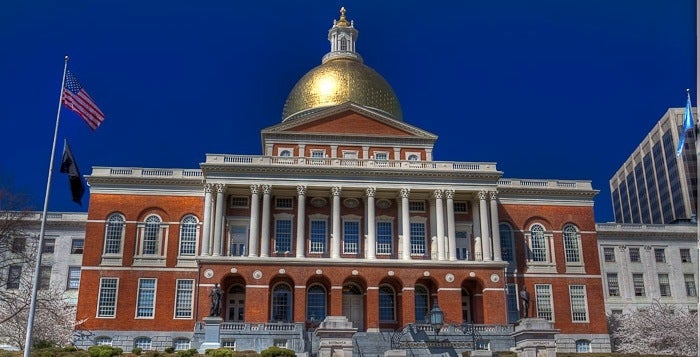With some states over the peak and Massachusetts health officials hopeful that the state is prepared to get through the surge of COVID-19 infections, a lot of the discussion on Beacon Hill has turned to when and how to begin reopening the economy.
To aid that effort, the Massachusetts High Technology Council on Thursday released a framework developed by some of the state’s top health and life sciences business leaders for the state to fully recover from the coronavirus outbreak and begin to open its businesses.
The framework centers around aggressive testing and support for new COVID-19 treatments until a vaccine can be developed. With those structures in place, the MHTC envisions a phased reopening starting with sectors that can adequately protect its workers and customers.
The council did not address the markers that should be used to determine when it will be appropriate to start the reopening process, but said the state should start planning now so businesses can prepare.
“By leveraging the Council’s CEO-level network, our team of subject matter experts and contributors will help to identify the specific conditions that must be in place to allow for restart and encourage
individuals to engage in economic activity,” the council said in a statement announcing the framework.
The initiative was led by Steve Pagliuca, co-chairman of Bain Capital and co-owner of the Boston Celtics, with the help of McKinsey and Co. Pagliuca is a member of the Mass. High Technology Council’s executive committee.
More than 30 top-level executives from the diagnostic testing, life sciences, health care delivery and manufacturing fields convened to review and sign off on the framework.
The council said its intent in developing the framework was to help inform the efforts of Gov. Charlie Baker and other Northeast governors as they work through the challenges of safely reopening the economy.
Baker has teamed up with six other East Coast states, including New York, New Jersey, Connecticut, Rhode Island, Pennsylvania and Delaware, to develop regional strategies for reopening the economy, and he said Wednesday he has been discussing the topic with the other New England governors as well.
Some states, like Vermont and New Hampshire, believe they are further along on the downward slope of the infection curve than Massachusetts, and therefore may take steps to reopen their states sooner.
“I just want to make sure we know what their next move is and they know what we’re up to so that people don’t end up surprising each other and creating what I talked about when we decided to join that larger northeastern coalition, which is a decision that somebody makes that creates tremendous difficulty for somebody else,” Baker said on Wednesday.
The MHTC framework is built around the idea that the state must “dynamically” model hospital capacity, which currently sits at 56 percent vacancy.
With the surge planning of individual hospitals and the field hospitals set up in arenas and other spaces around the state, so far Massachusetts health care facilities have not been overrun by COVID-19 patients needing beds and access to life-saving equipment.
The business leaders said the state must also identify and develop ways to support the most promising treatments for COVID-19, and put in place a “mass testing plan” to identify future spread of the virus. The council said that while a vaccine may be more than 18 months away, there have been “promising therapeutic developments with existing drugs” that could be deployed in May.
The council did not specify what treatments they were referring to, but Baker said he is aware that some hospitals are experimenting with plasma therapies and sharing their findings with each other.
The leaders said the best case scenario for a vaccine would be for it to become available in the first quarter of 2021, with a second wave of the virus potentially three to four months away.
On the workplace front, the framework recommends sequencing the return to work for different sectors based on risk and their ability to put in place safeguards for workers and consumers to minimize recurrence of the virus.
The idea is consistent with what Baker discussed on Wednesday and the White House’s guidance for a three-phase state reopening once cases are consistently on the decline.
Finally, the framework calls on policy leaders to “reimagine” the state’s support services to meet the needs of the state’s unemployed workforce and align safe transportation options with back-to-school guidelines for the fall and a daycare reopening plan.

